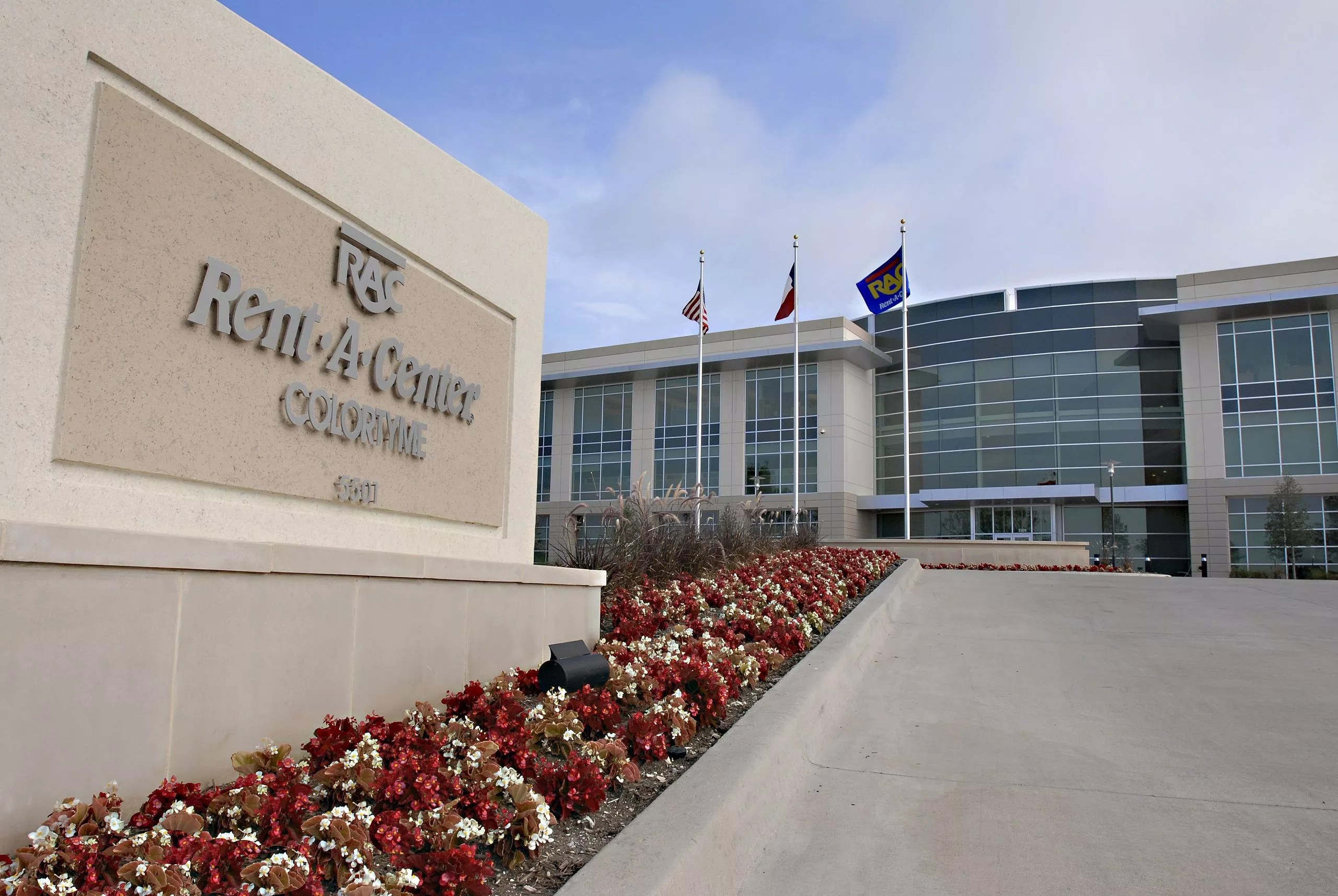
Jeff Bedford

Audio By Carbonatix
From 2015 to 2018, Rent-A-Center, a Plano-based rent-to-own company, signed a series of illegal agreements with its competitors to shut out competition, according to an investigation by the Federal Trade Commission. It will now walk away with a slap on the wrist.
At the time, the company was struggling. Its sales had slumped and its stock price had plummeted to 20% of its 2013 peak. In an effort to stem the bleeding, management laid off workers and closed stores. When it did so, the FTC alleged, the company handed open customer contracts over to a competitor. In exchange, that competitor would sign an anti-compete agreement and shutter a store somewhere else, sending those customers to Rent-A-Center.
These agreements, the FTC charged, violated federal law. They “likely led to store closures that may not have occurred otherwise,” including some that were profitable, it noted in a press release. They “affected consumers who already had few options for furnishing a home on a limited budget,” said Ian Conner, director of the FTC’s Bureau of Competition.
But his agency let Rent-A-Center – and its two major competitors in the industry also implicated in the scheme, Aaron’s and Buddy’s Home Furnishings – off the hook. It conducted a 10-month investigation, leveled charges and then, in a settlement agreement announced last month, let the three companies walk away with a promise not to do it again.
In a statement, Rent-A-Center acknowledged that the settlement would have little, if any, impact on its business. “There are no fines, penalties, admission of wrongdoing, fault or liability on the part of the Company. The settlement permits the Company to continue purchasing and selling customer lease agreements,” it noted.
The FTC’s commissioners voted 3-2 to approve the settlement. Rohit Chopra, one of the dissenters, objected to what he characterized as a “no-money, no-fault” agreement.
“While I am pleased that we have uncovered difficult-to-detect misconduct, I am concerned our remedy is insufficient, that the analytical basis of the proposed settlements is flawed, and that the Commission is doing little to deter similar misconduct by others,” he wrote.
Chopra has repeatedly slammed his own agency for failing to go after wrongdoers. Last year, the FTC declined to seek meaningful penalties after it uncovered evidence of wage-fixing by a local temp agency. Then, as now, Chopra argued that declining to pursue a financial penalty and not requiring an admission of wrongdoing rendered the FTC’s enforcement toothless.
“On the one hand, you have them announcing these big investigations. But then when it comes time to challenging violations of the law, they’re doing virtually nothing.” — Sandeep Vaheesan, Open Markets Institute
The FTC has recently been in the news for launching investigations into anti-competitive behavior by large tech companies like Google and Amazon. “On the one hand, you have them announcing these big investigations. But then when it comes time to challenging violations of the law, they’re doing virtually nothing,” said Sandeep Vaheesan, legal director at the Open Markets Institute.
Views on the FTC’s role appear to split along party lines. Chopra and his fellow dissenter, Kelly Slaughter, are the two Democrats on the commission.
The conduct investigated by the FTC occurred during a period of turmoil within the company. Slumping sales led the company to close hundreds of stores and seek a buyout. Its board had agreed to sell to the owner of Buddy’s, another target of the FTC investigation, for over $1.3 billion last year. But it pulled out of the deal when business began to improve.
Its revenue grew 11% in the fourth quarter of last year, marking the second straight year of growth in its core business, according to a statement from its CEO, Mitch Fadel.
Rent-A-Center allows customers to pay for big-ticket items like electronics or furniture in monthly installments. The model was pioneered in the United Kingdom in the early 20th century. In the 1950s, it spread to the United States, where it is now widely viewed as predatory.
These contracts allow people on limited incomes to stretch out a major expense, but customers often end up paying far more than the listed price. By 1998, Rent-A-Center was facing class-action lawsuits in five states for its exorbitant interest rates. The New York Times called it “much like a subprime mortgage for pull-out sofas and television sets” in 2008.
A 2017 investigation by the Texas Tribune highlighted the consequences. Texas law at the time allowed rent-to-own businesses to treat a refusal to pay as theft – and land their customers in jail for nonpayment. The new law passed last year ended that arrangement.
Executives have defended the company, saying its contracts provide a valuable service for families that can’t afford to drop hundreds of dollars on a new refrigerator.
And the FTC has been historically hesitant to regulate the practice. A staff report released in 2000 said that “most rent-to-own customers are satisfied with their experience” and that “careful analysis also should be undertaken before adopting policies that would substantially reduce the availability of rent-to-own transactions.”
Its chairman, Joseph Simons, issued a statement defending the settlement. He said it “would remedy the legal violation and prevent its recurrence” and praised the FTC for its “long history of addressing harmful practices in this industry.” The settlement will be finished after a period of public comment.